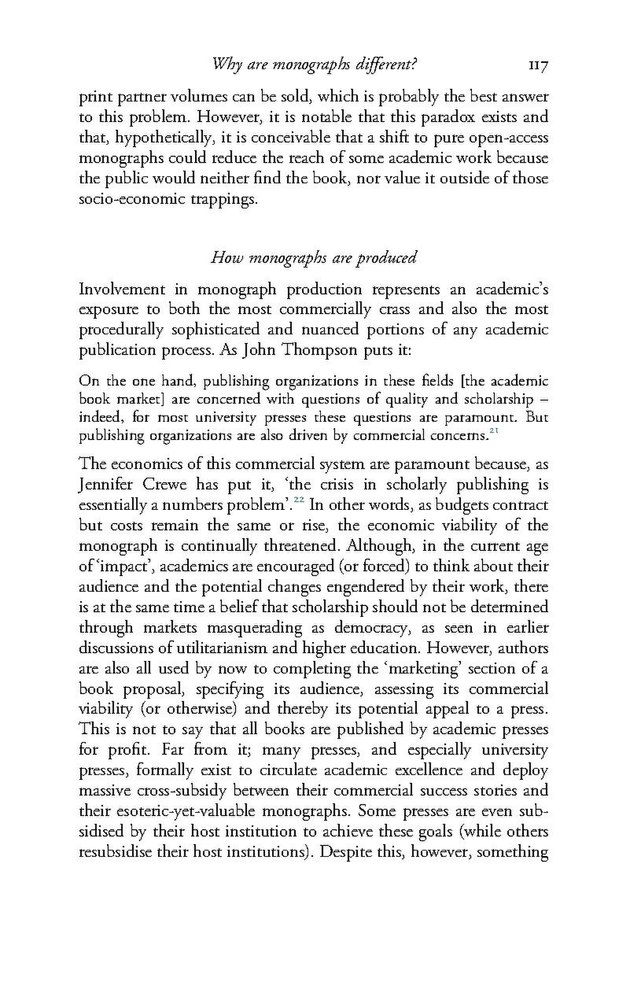print partner volumes can be sold, which is probably the best answer to this problem. However, it is notable that this paradox exists and that, hypothetically, it is conceivable that a shift to pure open-access monographs could reduce the reach of some academic work because the public would neither find the book, nor value it outside of those socio-economic trappings.
How monographs are produced
Involvement in monograph production represents an academic’s exposure to both the most commercially crass and also the most procedurally sophisticated and nuanced portions of any academic publication process. As John Thompson puts it:
On the one hand, publishing organizations in these fields [the academic book market] are concerned with questions of quality and scholarship – indeed, for most university presses these questions are paramount. But publishing organizations are also driven by commercial concerns.21
The economics of this commercial system are paramount because, as Jennifer Crewe has put it, ‘the crisis in scholarly publishing is essentially a numbers problem’.22 In other words, as budgets contract but costs remain the same or rise, the economic viability of the monograph is continually threatened. Although, in the current age of ‘impact’, academics are encouraged (or forced) to think about their audience and the potential changes engendered by their work, there is at the same time a belief that scholarship should not be determined through markets masquerading as democracy, as seen in earlier discussions of utilitarianism and higher education. However, authors are also all used by now to completing the ‘marketing’ section of a book proposal, specifying its audience, assessing its commercial viability (or otherwise) and thereby its potential appeal to a press. This is not to say that all books are published by academic presses for profit. Far from it; many presses, and especially university presses, formally exist to circulate academic excellence and deploy massive cross-subsidy between their commercial success stories and their esoteric-yet-valuable monographs. Some presses are even subsidised by their host institution to achieve these goals (while others resubsidise their host institutions). Despite this, however, something
